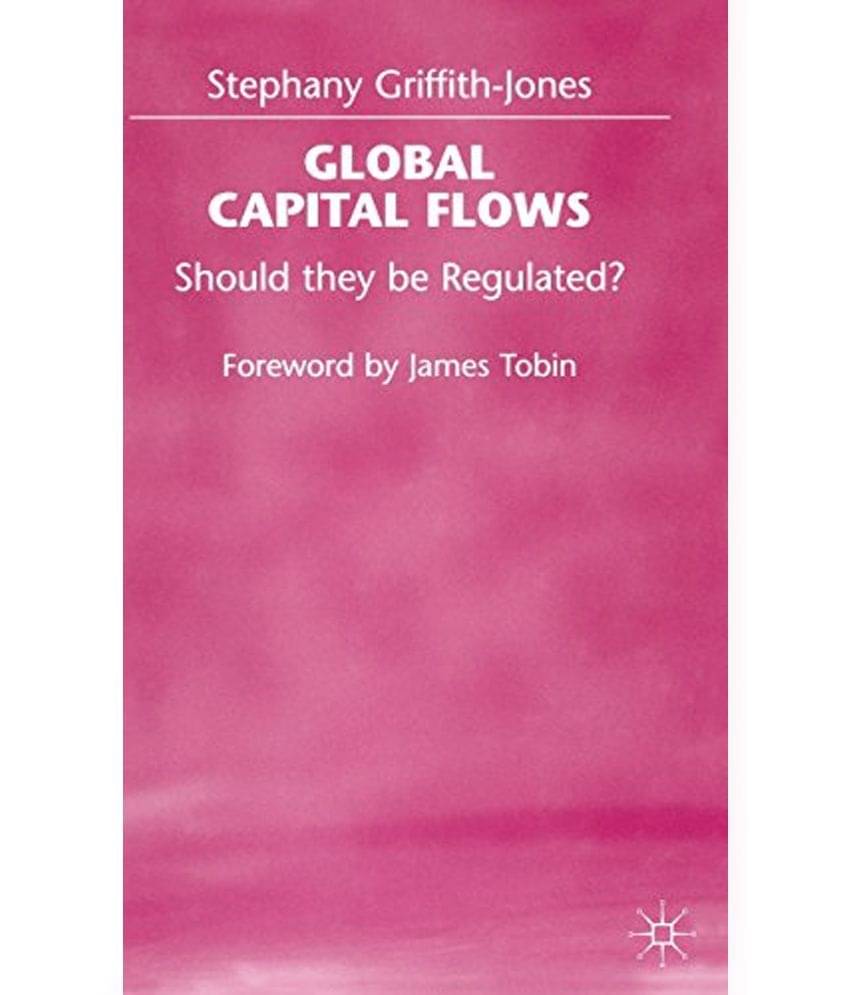Something went wrong. Please refresh the page and try again.
Something went wrong. Please refresh the page and try again.
Notifications can be turned off anytime from settings.
Item(s) Added To cart
Qty.0
Something went wrong. Please refresh the page and try again.
Something went wrong. Please refresh the page and try again.
Exchange offer not applicable. New product price is lower than exchange product price
Please check the updated No Cost EMI details on the payment page
Exchange offer is not applicable with this product
Exchange Offer cannot be clubbed with Bajaj Finserv for this product
Product price & seller has been updated as per Bajaj Finserv EMI option
Please apply exchange offer again
Your item has been added to Shortlist.
View AllYour Item has been added to Shopping List
View AllSorry! Global Capital Flows is sold out.


You will be notified when this product will be in stock
Learn More about the Book
The book examines the rapid growth and dramatic changes in capital flows globally and to emerging markets. In the context of relevant economic theory, it analyses benefits and costs of large and volatile capital flows to developing countries; the latter includes damaging currency crises as the Mexican and East Asian economies. The book makes innovative proposals on how best national governments - and especially - international organisations can avoid such crises.
Review Quotes
1.
'The fantastic revolution in financial markets of recent decades is still gaining momentum. Thanks to technological miracles of communication and computation, the scope and volume of financial activities rapidly multiply, greatly surpassing the growth of other industries. These developments are encouraged by the dominant trend in political ideology and economic policy throughout the world. Prevailing doctrines foster deregulation and privatisation; they downsize governments and exalt free markets; they stress international trade and investment as against economic nationalism and protectionism. In this book Stephany Griffith-Jones reviews the breathtaking recent history of financial deregulation, liberalisation, and globalization. She sees considerable merit in these trends, at the same time that they can and sometimes do generate volatility and instability that inflict real costs on whole economies. She earnestly seeks some feasible compromises. Those who rush emerging and transition economies into premature currency convertibility and free trade in financial instruments are not doing those countries a favour. After all, during 1947-72, the halcyon quarter century of economic growth, world trade, and international real investment, some major capitalist democracies maintained controls on currency transactions and capital movements. These were not fully dismantled until the 1980s. Experience has not, not yet anyway, vindicated current orthodox confidence that free global financial markets are the keys to stable world wide prosperity. Stephany Griffith-Jones expounds these themes with clarity and conviction, firmly grounded in her thorough knowledge of the theory and practice of the economics of finance.' - James Tobin, Nobel Laureate for Economics
'Griffith-Jones' survey of the theoretical literature behine financial crises is excellent and is recommended for any IPE enthusiast...this survey of world-wide foreign capital flows during the early 1990s will likely be on many international finance-course reading-lists.' - Charles W. Parker, III, Millennium: Journal of International Studies
2.
'The fantastic revolution in financial markets of recent decades is still gaining momentum. Thanks to technological miracles of communication and computation, the scope and volume of financial activities rapidly multiply, greatly surpassing the growth of other industries. These developments are encouraged by the dominant trend in political ideology and economic policy throughout the world. Prevailing doctrines foster deregulation and privatisation; they downsize governments and exalt free markets; they stress international trade and investment as against economic nationalism and protectionism. In this book Stephany Griffith-Jones reviews the breathtaking recent history of financial deregulation, liberalisation, and globalization. She sees considerable merit in these trends, at the same time that they can and sometimes do generate volatility and instability that inflict real costs on whole economies. She earnestly seeks some feasible compromises. Those who rush emerging and transition economies into premature currency convertibility and free trade in financial instruments are not doing those countries a favour. After all, during 1947-72, the halcyon quarter century of economic growth, world trade, and international real investment, some major capitalist democracies maintained controls on currency transactions and capital movements. These were not fully dismantled until the 1980s. Experience has not, not yet anyway, vindicated current orthodox confidence that free global financial markets are the keys to stable world wide prosperity. Stephany Griffith-Jones expounds these themes with clarity and conviction, firmly grounded in her thorough knowledge of the theory and practice of the economics of finance.' - James Tobin, Nobel Laureate for Economics
'Griffith-Jones' survey of the theoretical literature behine financial crises is excellent and is recommended for any IPE enthusiast...this survey of world-wide foreign capital flows during the early 1990s will likely be on many international finance-course reading-lists.' - Charles W. Parker, III, Millennium: Journal of International Studies
The images represent actual product though color of the image and product may slightly differ.
Snapdeal does not select, edit, modify, alter, add or supplement the information, description and other specifications provided by the Seller.
Register now to get updates on promotions and
coupons. Or Download App